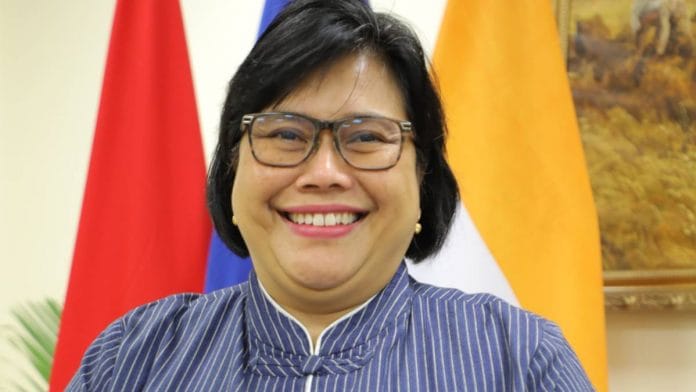New Delhi: India and Indonesia are planning to step up bilateral cooperation in defence and security, and are holding regular discussions on the sharing of technologies in a rapidly changing geopolitical environment, Ina Krisnamurthi, Indonesia’s ambassador to India, has said.
In an exclusive interview with ThePrint, Krisnamurthi said that after Jakarta and New Delhi signed the defence cooperation agreement in 2018, the two sides have been holding a regular dialogue on technology sharing based on the equipment and arms they both produce — which includes a possible export of India’s BrahMos cruise missile to Indonesia.
“The cooperation on defence between Indonesia and India is not merely about buying and selling. It’s not only about export or import, it’s more than that. This is because we both know each other’s capabilities and capacities in our defence industries,” Krisnamurthi told ThePrint.
She pointed out that Indonesia produces fighter planes as well as defence equipment that is being used by UN peacekeeping forces.
“On defence we are now looking at enhancement… right now we have ships coming in from Indonesia to India and India to Indonesia. Also, regular dialogue is taking place between the defence ministries of both countries,” she added.
Last week, INS Sumedha was on a visit to Port Tanjung Benoa, Bali, as part of the Indian Navy’s long-range deployment in the southeastern Indian Ocean. Prior to entering Bali, the ship undertook a maritime partnership exercise on 2 August with KRI Sultan Hasanuddin, a Sigma-class corvette of the Indonesian Navy, according to a statement issued by the Indian Navy.
“We need to also remember that right now, the disruption in global value chains will disrupt our defence industries,” she added.
Also read: Islam Nusantara saved Indonesia’s Muslims from ISIS. It can help India too
‘We cannot own Indo-Pacific’
Jakarta and New Delhi, according to the Indonesian envoy, are collaborating on the Indo-Pacific strategic network based on their respective sets of rules and principles.
Indonesia follows the Indo-Pacific rules laid out under the larger Association of Southeast Asian Nations (ASEAN) setup, also known as the ‘ASEAN Outlook On The Indo-Pacific’ under which maritime cooperation is of the topmost priority.
“We respect each other on the concepts and principles … but more importantly ASEAN, and because we are part of it, ASEAN and India believe that we need to build bridges keeping in mind the global dynamics,” she said.
“We need to understand that we cannot own the Indo-Pacific. We are in the Indo-Pacific. So, if people want to cooperate or collaborate in the Indo-Pacific, they need to understand that there are countries like us which are here already and we own the sea, the land in the Indo-Pacific,” she added.
For the first time in May this year, ASEAN and the US held a special summit in order to emphasise the importance of the 10-member bloc in having a “free and open” Indo-Pacific with ASEAN centrality at its core.
Krisnamurthi also highlighted that Indonesia and India are “neighbours” due to the proximity between the Andaman and Nicobar Islands and the Indonesian island of Sumatra.
“I think we need to be mindful of the geographical distance between the two countries… so when it comes to being neighbours, we need to respect each other’s integrity and independence,” she said.
G20 summit to be a ‘game-changer’
Indonesia is the chair of the G20 this year, and the G20 summit will be held in Bali in November at a time when the Russia-Ukraine War is raging.
In late June, Indonesian President Joko Widodo became the first Asian leader to visit wartorn Ukraine, followed by a trip to G20 member Russia to serve as a “communication bridge” between Kyiv and Moscow.
“We want the G20 (hosted by Indonesia) to be a game-changer when it comes to challenges of global issues, especially food and energy security,” Krisnamurthi said.
She also highlighted the fact that after President Widodo’s visit, the export of grain from Ukrainian ports resumed, with the first shipment of 26,000 tonnes of food leaving for Lebanon on 3 August under the Black Sea Grain Initiative.
“We are humbly honoured that the opening up of export of grain happened in a short time after the visit. This opening up of grain export would help volatility in price, and the uncertainty in the value chain and food security issues,” she said.
(Edited by Nida Fatima Siddiqui)
Also read: Biden hits out at Xi, says China made ‘mistake’ by skipping G20, COP26 summits






